|
A Message from our Inclusive Spirit Team
After accepting the role of Chaplain at Barton College I knew I wanted to attend First Christian occasionally to build relationships and learn more about the DOC denomination. This, I thought, would assist with my new role just a few blocks down the street. I did not know that my daughter and I would want to become members. Nor did I know I would become an Elder and part of the Inclusive Spirit team. But God is so very good - ALL the time. The first Sunday I worshiped at First Christian Church I felt like I had been held. My weary faith was barely hanging on after the tumultuous times of Covid and the passing of my mother. I was also frustrated with and hurt by my current church for not, yet, fully accepting the LGBTQ+ community. Walking into FCC I received a warm welcome from folks I did not know. The music, liturgy, and message reminded me that God is love and God is with us. And Communion every Sunday? Yes, please! Upon my exit I noticed the thoughtful placement of reusable shopping bags, messages of taking care of what God has gifted us and literature speaking of an accepting theology complete with colorful rainbows. All of these align with what I know to be True. Over the next few months I attended and would bring along family members. Emory, my teenage daughter, felt as held as I did. She was able to see kindred spirits not only attending worship but also being celebrated and having leadership roles. Thank you FCC! So, when asked to be a part of a group to help our church become officially Open & Affirming how could I not? This holy place is helping heal many weary faiths, mine included. We are already doing this Kingdom work. May we continue. May we, together, adopt an official Open and Affirming statement to ensure that others know and trust God’s unlimited love, through Jesus the Christ, by way of the Holy Spirit. God bless you and keep you all of your days. With love and prayers, Alysun Skinner
0 Comments
Dear Members of the First Christian Church Board,
As our church continues to navigate our journey of faith for wholeness in a fragmented world, the ad hoc team for Inclusive Spirit is proposing an important step forward for our congregation. It is with great enthusiasm and commitment that we present to you the proposal for First Christian Church Wilson, NC to officially become an Open and Affirming congregation. Did you already think we were Open and Affirming? So did a few of us! For many years, our church has embraced the principles of inclusivity, acceptance, and love for all. We have strived to create a welcoming and supportive environment where everyone feels valued and respected. However, despite our longstanding practice of inclusivity, we have yet to formalize our commitment through an official Open and Affirming declaration. By becoming an Open and Affirming congregation, we have the opportunity to reaffirm our dedication to the values of love, compassion, and justice that lie at the heart of our Christian faith. This declaration would serve as a public statement of our commitment to embracing and celebrating the diversity of God's creation, ensuring that all individuals, regardless of their race, gender, age, sexual orientation, gender expression, nationality, ethnicity, marital status, physical or mental ability, political stance or theological perspective feel safe, valued, and fully included in the life and leadership of our church community. Our Inclusive Spirit ad hoc team includes Theresa Mathis, Tish Scott, Robby Boyette, Stephanie Pridgen, Roy Henderson, Alysun Skinner, and Rev. Scott Schieber. Formally adopting an Open and Affirming stance would not only align with our core values but also reflect the evolving social and cultural landscape in which we live. It will also grant us the opportunity to extend our outreach efforts and engage authentically with marginalized communities both within and beyond our church walls. We believe it is imperative that our church stands as a beacon of light, love, and affirmation, welcoming all, as God has welcomed us. In practical terms, adopting an Open and Affirming designation would involve a process of education, dialogue, and discernment within our congregation. It would require us to engage in meaningful conversations about the theological, ethical, and practical dimensions of inclusion, as well as to address any concerns or questions that may arise among our members. We are currently working on several Summer Gatherings that will include listening and storytelling sessions to share with our congregation over the summer. We are confident that, with your leadership and support, First Christian Church can successfully navigate this process and emerge as a stronger, more vibrant community of faith. By officially embracing our Open and Affirming identity, we have the opportunity to live out the radical love of Christ in tangible ways, transforming hearts and minds, and building a more just and compassionate world for all. Thank you for considering this proposal, and for your ongoing dedication to the mission and ministry of First Christian Church. We look forward to the opportunity to discuss this important matter further and to journey together as we continue to live out God's call to love and serve one another through Jesus the Christ, by way of the Holy Spirit. With gratitude your Inclusive Spirit Team, Theresa Mathis Tish Scott Robby Boyette Roy Henderson Alysun Skinner Stephanie Pridgen Rev. Scott Schieber (ex officio) Minister’s Corner
Mindfulness Psychology Today describes mindfulness as: “…a state of active, open attention to the present. This state is described as observing one’s thoughts and feelings without judging them as good or bad.” Mindful.com describes mindfulness as “the basic human ability to be fully present, aware of where we are and what we’re doing, and not overly reactive or overwhelmed by what’s going on around us.” I describe it as the simple ability to pay attention to what you are doing. Often, our family will be sitting around the table and eventually, someone takes out their phone and, without getting up from the table, exits the conversation, and my sister scoldingly says, “BE HERE, NOW.” Point taken. And sooner or later, she reaches for her phone, and everyone repeats her refrain. The truth is, we are distracted all the time. I’m frequently distracted while driving, preaching, eating, even sleeping. Being present to others and to ourselves is a rare gift. Mindfulness is something I’d like to explore with you during Lent. There are a lot of things to be mindful of, an exhaustive list that we won’t cover completely. Lent is a season of repentance, a time when we look ourselves in the mirror and task ourselves and each other with turning back and reorienting ourselves to God. To do that requires mindfulness. Here are the themes I’ve landed on for this mindfulness series: Repentance, Self, Creation, Compassion, Wholeness, Community, and Mercy. If we can walk away from Lent more mindful of these things, I’m convinced we will be better people and a better church. Look for an opportunity to participate in a 40-day mindfulness challenge beginning on Valentine’s Day, which is also Ash Wednesday this year. Peace, Scott Each New Year brings the opportunity to set a resolution to make meaningful, positive changes in your life. Many people are skeptical of resolutions; statistics show that, as you might expect, it's easy to say you're going to make a change than to actually do it.
One thing is for sure—2024 is going to bring meaningful, positive change to my life. For one thing, I'll wake up in the morning of January 1 as a resident of Ohio, and go to sleep that night, God willing, as a resident of North Carolina. On January 2, I begin my work as your pastor, at long last. I'm excited, anxious, and yes, a little scared. These are all new things for me, and though I feel like my heart, mind and body are ready, things are going to be different, and that can be hard. Still, I'm so looking forward to getting started and worshiping with you on January 7 (and 14, and 21, and so on). It's an exciting time, for all of us, I hope. In Advent, we talk about hope, peace, joy, and love. The importance of those themes don't fade just because we hang a new calendar on the wall. I'm looking forward to living into those things, together with you, my First Christian family. It's going to be a Happy New Year! Peace, Scott 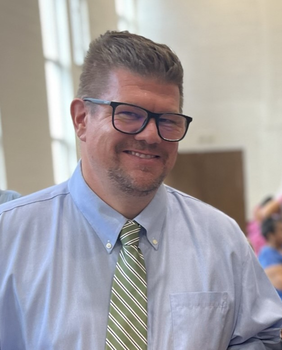 Greetings! Employment in a church is unique in so many ways, not the least of which is the lag in hiring someone and the beginning of the work. The last time you heard from me was October 1—doesn’t that seem like a long time ago? It sure does for me. I’m super excited, not only about starting my full-time employment, but also worshipping with you on December 10 and 24. Since I was with you, I’ve had some bumps in the road, finished out my Interim Ministry in Columbus, gone into contract on a home in Wilson, and started packing. While it seems like October 1 was a long time ago, January 1, my move date, looms over our house. This is our first out-of-state move, and we are learning the ins-and-outs. I’m anticipating it being the last one, at least for a good long time. My wish for you is that this Christmas season will be one filled with joy and peace for you and your loved ones. I get all the ‘feels’ at Christmas—it is a bittersweet season, full of goodness and generosity, but also memories of days and folks gone by. My intention is to always pay attention to how my heart is feeling, and it runs the gamut! It will be a different Christmas for me this year, as I will be moving away from close family members in Ohio in 2024. They have some opinions about that! Through it all, Advent is a season of anticipation and expectation. In a typical Advent, we are anticipating and expecting a Savior to be born among us. While I’m expecting and anticipating that, my biggest anticipation is beginning our shared ministry in January, at last! Peace, Scott 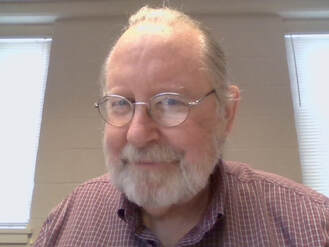 The day I walked out of Christmount when I retired in February, 2019, after 29 years and 9 months of being on staff, I said simply (and mysteriously), "So long, and thanks for all the fish!" It was a reference to the dolphins leaving earth as it was being destroyed to put a space highway through that section of the Milky Way, and an utterly ridiculous way to walk out - but I didn't care: I wanted it to be memorable to me. Some of you, I'm sure, are Hitchhiker fans! While it was utter nonsense, our Executive Director got it: what in the world can you say in a situation like that, where people you had worked with for years were kind of sad (thank God!) and watching 30 years of history and ministry walking out the door? Since I've used it once, I won't do it again (as tempting as it is - everyone needs a trademark, huh?); but it does lead me to my final message to you. Renae and I have loved being at First Christian Church, Wilson. I arrived almost 50 years after my first college visit, and a little prior to my entering Atlantic Christian College in August, 1972. I found that very fitting as I began a major interim ministry; I committed to almost a year; we're now at the end of 18 months! This church was the only church I visited my freshman year, and I only came once; but UCCF (United Campus Christian Fellowship) met here monthly, and some of you fed us regularly. Some of you I have known me my entire ministerial life - from camps and youth ministry in the Coastal Plains District. Renae came in only knowing a few of you, although some of you recall when she came down to lead a CWF retreat back in the early 2000's, I think (she was sick with a cold and somehow managed to get through it, including singing!); she met some folks who remembered her on our occasional trips to church when we would visit Todd. I'm glad that Renae was able to find Wilson a good place to be for her art. She sold some of her "greeting cards" at the Selkie (and is still doing that online through their web site), and sold some of her devotional books downtown. She met some folks in the art community and will have those friendships for the rest of her life! She's also a person who walks almost daily, and even though some Wilsonians decided to try and drive on the sidewalks or run red lights to run her over, she managed to survive! But many of you have reached out to her to include her in your lives, and we are both appreciative of that. Everyone has been telling me what a great job I did here. But you know who did the really good job? You. You didn't wait for me to decide on a direction to take you: you were already headed that way! You've grabbed the bull by the horns over and over again. I didn't have to help set things up for special occasions (I did help move a few tables a couple of times, but that's about it!). You greeted visitors with your warmth, joy, and love. You've been kind to the occasional homeless person who walks in off the street. You've begun a relationship with St. James Christian Church, working to do local outreach. You've supported food drives, Hope Station and other helping agencies around town, Casey and the choirs and the entire music ministry, Margaret Hearne School, the Pride Festival, the concerts in the winter and summer, the community Hymn Sing at Forest Hills Baptist Church, and been a light in general to the community here. I didn't do that, I didn't suggest it, I didn't start it: you did it all. My prayer for you is that you will welcome Scott and Beth and that your ministry together will be even stronger. There's a lot of creativity in this place, so I can't wait to see how that all plays out. There's untapped energy waiting to be utilized. There are new people willing to step forward into leadership. Affectionately, jamie The first text message Rev. Scott Scheiber (pronounced Shee’–ber) made immediately after the congregation enthusiastically voted Sunday to call him as senior minister at First Christian was not to his son, Will, a senior at Michigan State. It was to his new local Realtor to place an offer on a Wilson home. Will was second. Wife, Beth, and daughter, Cate, a sophomore at Belmont Abbey College, heard the news and the cheers of his appointment firsthand at the spirited reception following worship. Scott will start his ministry here in January. To help supplement the schedule of visiting ministers who will fill the pulpit when Rev. Jamie Brame concludes his interim ministry at the end of the month, Scott will return on Sunday, December 10, and Christmas Eve to lead services. Scott’s visit on Sunday was his final step in the search and call process, a public audition in worship to fill the senior minister position vacant since February 2022. In the opening remarks of his sermon, Scott talked about the mystery of his call to us and our call to him. “Your search for a pastor began … right when my need for a new renewal in my life and a new congregation began,” he said. “I feel like we’ve been led by the Spirit to this day.” Scott also addressed the congregation’s continuous prayer for a transformational pastor. “I am not sure I am that,” he said. “What I am is a pastor that is willing to walk with you and wait with you for the transformational God we all worship. “I believe that transformation can and does happen. I believe that God will show a fresh vision for this church … at the right time. “It will come as long as our eyes are open looking for new possibilities that the Spirit will surely and inevitably bring to this doorstep. And when that vision arrives, I am someone who will commit to it.” Scott’s search and call papers appeared in Search Committee Chair Christy Proctor’s email on August 10, another of many profiles provided by Regional Minister Valerie Melvin during the 17-month search. On August 23, the committee got to know Scott during a two-hour ZOOM interview as he answered questions about specific experiences in ministry, worship, Christian education, pastoral care, mission outreach, church growth, sermon preparation and delivery, stewardship, extending a welcoming embrace to all and transformational behavior on his part and ours. After the interview, the committee unanimously voted to invite Scott and his wife, Beth, to Wilson for an official visit. On Wednesday, September 13, they arrived. Across three busy days, Scott shared meals with the committee, toured the church campus and the YMCA, talked with community leaders, met with the elders and with Minister of Music Casey Childers and experienced a chauffeured excursion through Wilson. Beth accompanied Scott to appointments as her busy marketing career allowed. On Friday evening, September 15, the committee gathered with Scott in the church parlor for a second two-hour interview. With what he’d learned about First Christian and the community during his visit as the basis for his answers, he spoke again about transformational leadership, teaching and preaching, administration and planning, open and affirming behavior, pastoral care and mission work. After the interview, with clarity of perfect awareness, the committee extended to Scott an invitation to preach on World Communion Sunday, certain that this congregation was called to Scott and he to us. Scott earned a Batchelor of Arts in English Language and Literature, specializing in creative writing, from Ohio University in 1994 and a Master of Divinity from Methodist Theological School in Ohio in 2011, specializing in church leadership. He was ordained by the United Church of Christ in 2011. In 1989, the United Church of Christ and the Christian Church (Disciples of Christ) approved a historic partnership of full communion proclaiming mutual recognition of their sacraments and ordained ministry. By this agreement, Scott is considered an ordained minister within our denomination. Scott is currently concluding a yearlong intentional interim ministry at Northwest Christian Church in Upper Arlington, Ohio. He served as pastor at Highwater United Church of Christ in Newark, Ohio, from 2011 to 2022 and as Adjunct Instructor in Field Education for Methodist Theological School in Ohio from 2017 to 2019. Scott is an avid Ohio State University fan. Search Committee members included Chair Christy Proctor, Trevor Dildy, Patsy Ferrell, Kendra Howell, Clayton Bardin, Beth Williams and Bob Kendall. Board Chair Theresa Mathis and Casey Childers served as ex officio members. It's been good to celebrate the baptisms of five of our young people!
Holy Week and Easter were wonderful. Lent was the busiest I've had in ages. While I know the church is not as busy at it could be, I'd have to say that you continue to surprise and please me by being more "member-driven" than "minister-driven," not waiting for me to decide where we're going! That's important. A member-driven church means that you are not waiting for your next pastor to come in and tell you what to do. It means that you are being a fully-mature church rather than a church that is in a holding pattern. It means that when a new pastor arrives, you'll be able to inform him/ her about what the church is about rather than saying, "We've been sitting here waiting for someone to come and get us going again." Jesus told the parable of the talents. You might remember it (Matthew 25: 14 - 30). The "master" decided to take a trip, so he called his three most trusted workers together and gave each of them some money to look after. Two of them invested the money and increased its value, while one just held onto it so he wouldn't risk losing it. For me, the similarity of this story to our situation is that most of you have invested your time and energy in some way that your faith and involvement have grown. Very few have just sat back and waited for "whoever is next." If you remember the end of the parable, when the master returned, only one of the servants got in trouble: the one who hadn't done anything. The church of today will be the church of tomorrow only if it is a member-driven church. We'll never be the church we were even 10 years ago, much less 50 years or more ago. That's not a bad thing. The world isn't what it was 10 years ago, and would be unrecognizable 50 or more years back! Let's face it: as recently as 25 years ago, "Google" was not even a noun, much less a verb! The changes that will be coming in the next five years will be amazing, unthinkable to some, but necessary if we are to do more than just survive. The church of Jesus Christ has never been about just surviving (those churches that have are, in many cases, barely recognizable as churches today or not in existence at all!). Those that adapt to the modern world don't die: they take the best of the world outside (computers, live streaming, and big screens in the sanctuary) and use them to make both strangers and members feel more at home in worship and during the week. The future isn't coming, it's already here (somebody else said that, and they were absolutely correct). The best way we can meet that future and not just be dragged along by it is to worship honestly, to love each other, and to offer compassion and service to the world in which we live. -jamie #fccwilson #fccwilsonnc #ncdisciples #ccdoc #greenchalice #greenchalicecongregation #talents #openandinclusive #openandinclusivechurch #openandinclusivechurchfamily 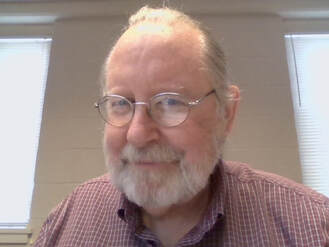 It's Lent. Many of you lifelong Disciples know that until the late 60's, Disciples didn't think much of Lent, unless we had Roman Catholic friends and coworkers who discussed it around us. My friend, John Gardner, was a serious Catholic who took all of the major holy days and seasons quite seriously, so each winter I got a dose of John "sermonizing" about why we should all observe Lent. When I reached the 9th grade, though, we had a new pastor who worked hard to bring us into line with the rest of the Church and teach us about Lent as a spiritual practice. Since that time, I have rarely missed out on this holy time. I tend not to think of it as work, but as an opportunity to practice, privately, a more strenuous spiritual discipline. Sometimes, I fail miserably (like whenever I convince myself in midFebruary that a 24-hour fast once a week is a thing I can do!); at other times, I seem to breeze through praying all the Psalms twice or more during the 40-days! Often, though, I forget the first rule of Lent: talk to God about what and why you are doing what you're doing! The success of Jesus' time in the wilderness (if it can be called "success") was that he kept God right in front of him. That's more the point than anything else: Lent should bring us closer to God, not help us rack up self-esteem points by what we are able to do on our own. Observances that we can do: daily Bible reading (learning not to study the Bible only, but to converse with it, asking our questions and listening and reading for answers); daily meditation (sitting silently and letting ourselves be aware of being surrounded by God); giving up foods that maybe aren't that good for us anyway (and praying every time we start to waver in our discipline); fasting (again, be careful about this!), even if it's only a partial fast (maybe only water and crackers or a piece of bread for lunch); keeping up with social issues - hunger, racism, war, violence, environmental changes, etc. - and offering prayers or educating ourselves about the issue or issues; being kinder to people as you wander around Wilson doing your daily chores. You get the idea! Whatever you and I do, though, let's be sure and take it to God daily. That's the only reason for Lent, really: to draw us closer to the One who loves us, and everyone, unconditionally! -jamie 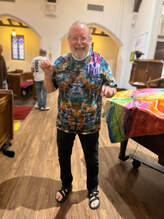 A word from the interim minister Lent was always an enigma to me in my childhood: Disciples didn't mention it much. Suddenly, in the late 1960's, Lent became a thing! Luckily, I had a great Roman Catholic friend, John (think of a religious Sheldon Cooper from "Big Bang Theory"!), who calmly explained to me how to do it right. He took it in profound seriousness, as though the foundations of the church would crumble if he didn't select the exact thing God had selected for him to "give up" during the 40 days (not counting Sundays) before Easter. I always told Mother I was giving up spinach, or beets, or green bean casseroles, or Sunday School, or homework: she recommended my giving up dessert, chocolate, and other sugary treats. It's no wonder it took me several years to truly embrace Lenten observances. If you are a regular listener to my sermons, you know that when I was in Dublin, GA, as a pastor right after seminary, I was the Sunday School teacher for a group of 9 - 11 yearolds, and that they were the most brilliant children who ever walked the face of the earth (according to me, and their parents). When I was teaching them about how to have a "holy Lent," I talked about giving up something important to them (chocolate, desserts, soft drinks, etc.; I turned into my parents, it seems!). I've mentioned Saint Mandy before: she asked the question, "Can you take something on instead?" "What do you mean?" I responded. "You know, like can you do something good for someone every day, or once a week go visit someone homebound or sick, or collect money to give to the poor. That kind of thing?" Those kids sure made ministry easy! Give up, or take on: do something this Lent. Good news: while I was living for a short time at a monastery, I learned that Sundays are "feast days:" what that means is that on Sundays, you ALWAYS celebrate the Resurrection, which means each week, you get a one-day break from your Lenten sacrifice (thank you once again, Jesus!). Here are a few suggestions for a holy Lent (each one of these is a separate activity rather than several to do each day!): read a couple of Psalms each day; read the four Gospels; practice five minutes of silent sitting in the presence of God; have a regular devotional time; pray the prayer list from the previous Sunday; journal; make a prayer list and pray it daily; do a partial fast (skip one meal each day, if your health is good); do a partial fast once a week; take on a good deed to do each week. You get the idea: Lent is more than a reduction in chocolate consumption! For more ideas, check out these web sites (I do not endorse any of these; you can do your own search. But I saw some good ideas in each of these): Lenten Ideas 1 Lenten Ideas 2 May God bless your intentions this Lent. - jamie #ccdoc #ncdisciples #christianchurch #christianchurchdisciplesofchrist #lent #journey #wilderness #40days #openandinclusive #allarewelcome |
Authors
These thoughts and reflections come from our Senior Minister, Minister of Music and Board Chair. We hope that they provide both challenge and inspiration for your spiritual life. Archives
July 2024
Categories
All
|
#FCCWILSONNC
A Disciples of Christ Congregation located in Eastern North Carolina
207 Tarboro Street North | Wilson, NC
Corner of Vance & Tarboro Streets
252-237-4125
Updated: July 17, 2024 | 9:45am
A Disciples of Christ Congregation located in Eastern North Carolina
207 Tarboro Street North | Wilson, NC
Corner of Vance & Tarboro Streets
252-237-4125
Updated: July 17, 2024 | 9:45am
Proudly powered by Weebly

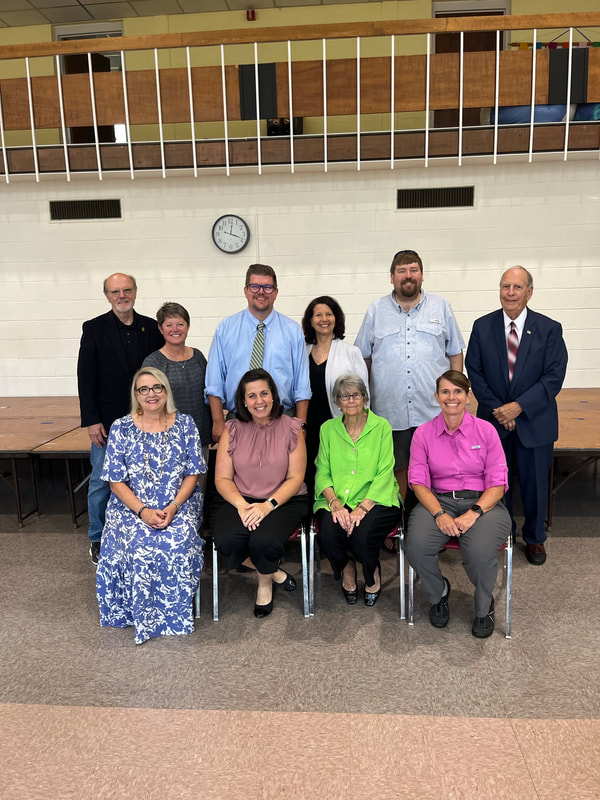
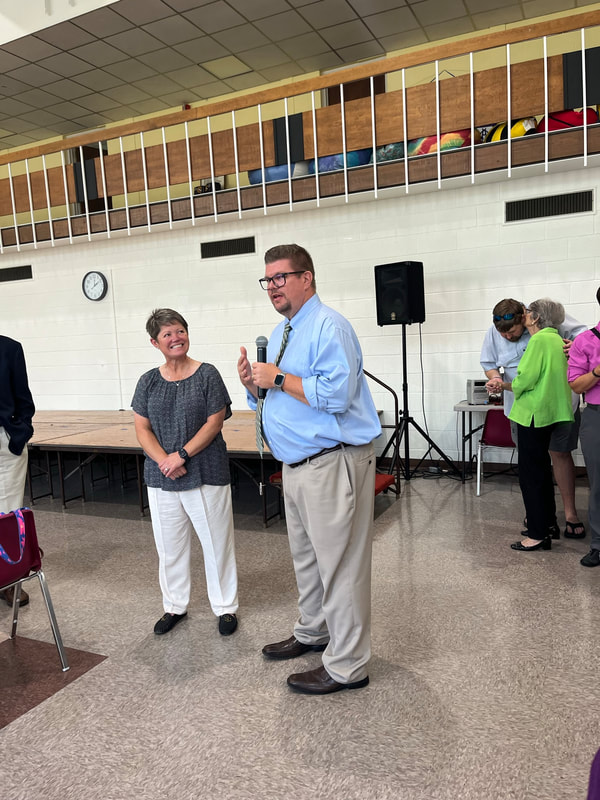

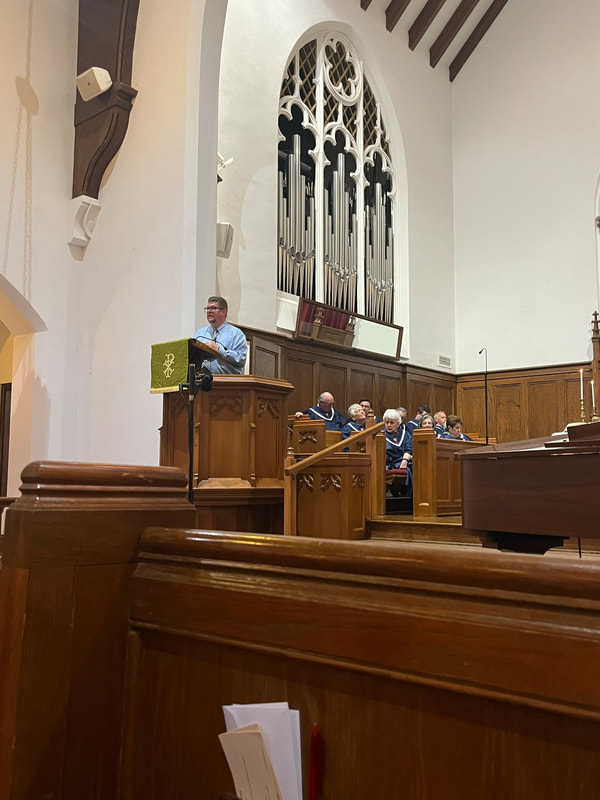
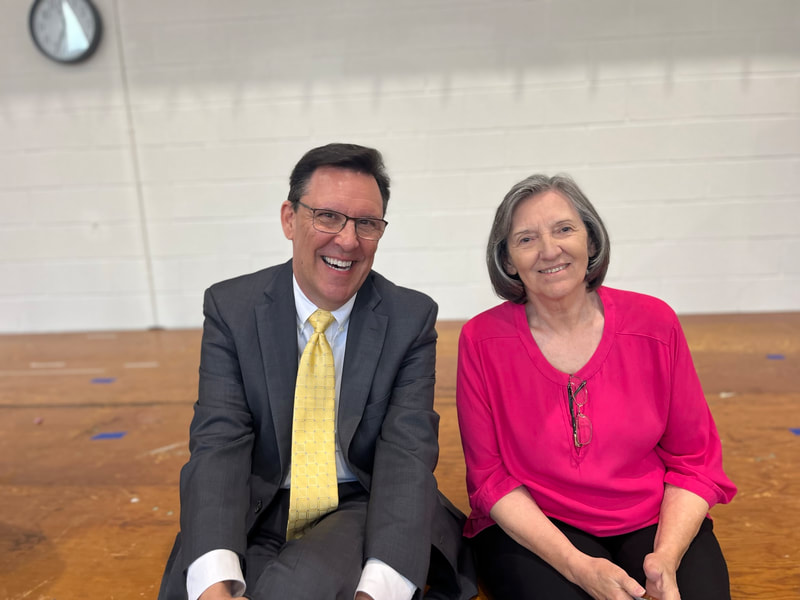
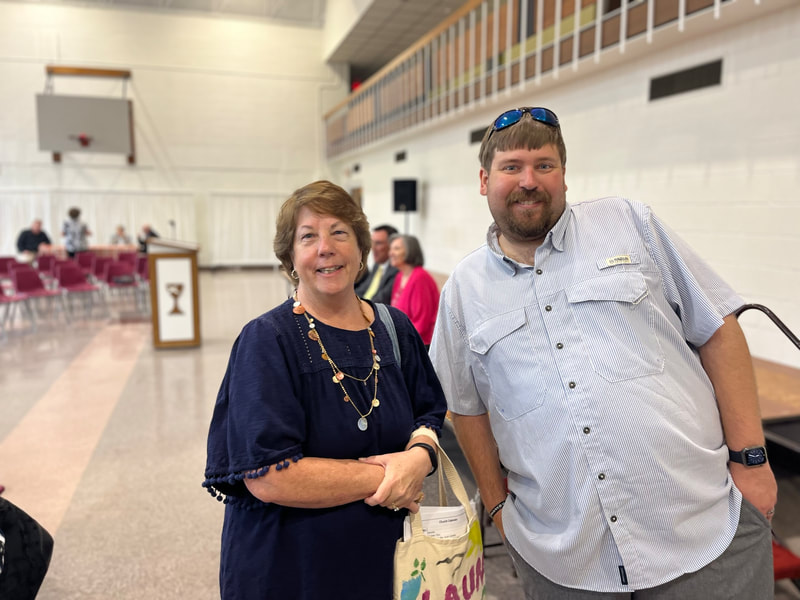
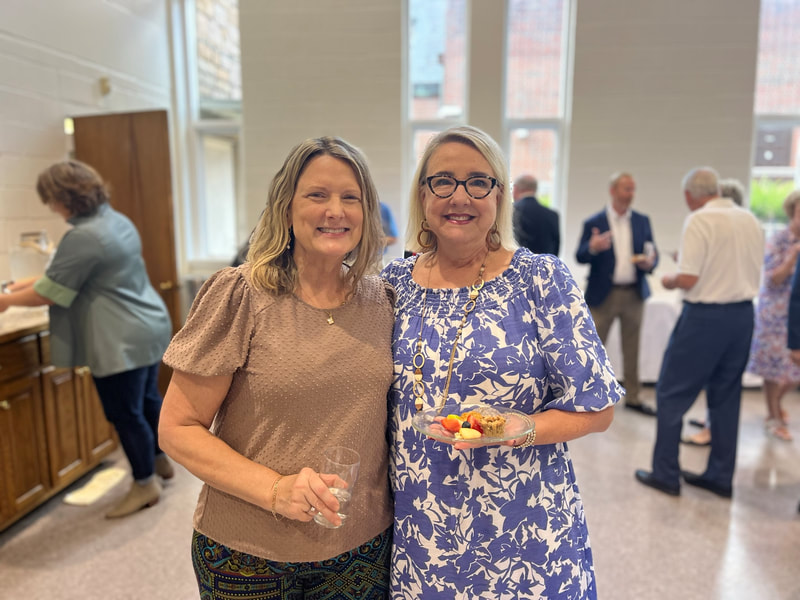
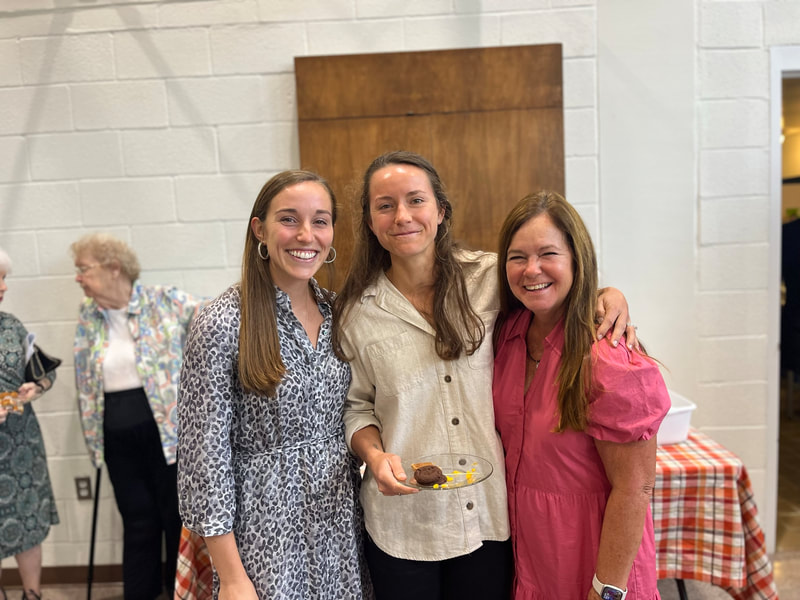
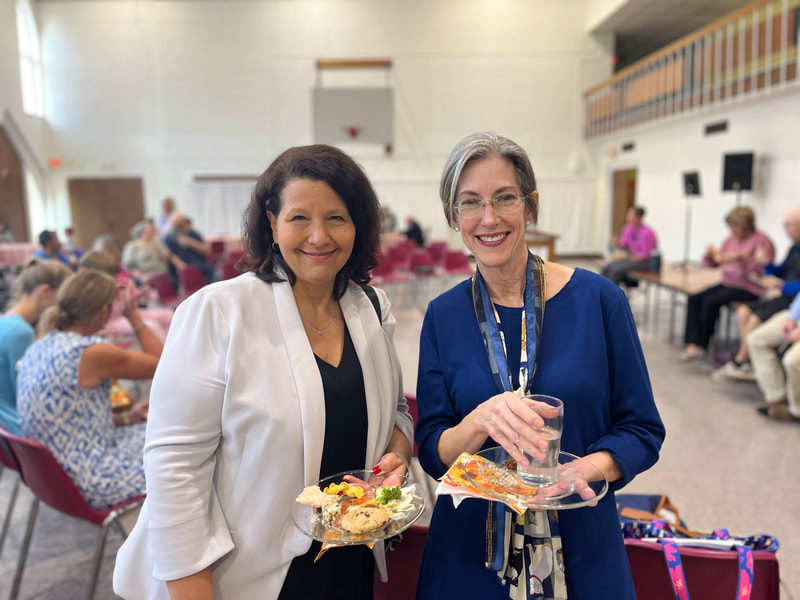
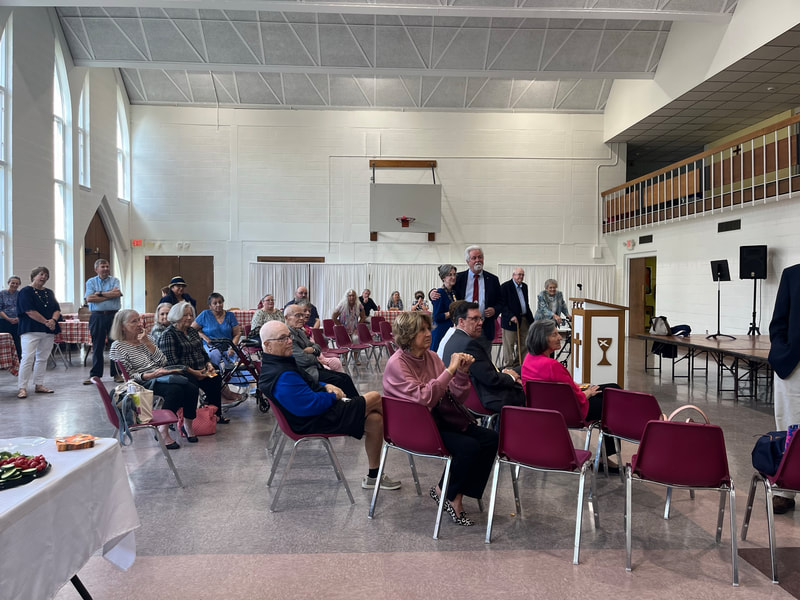
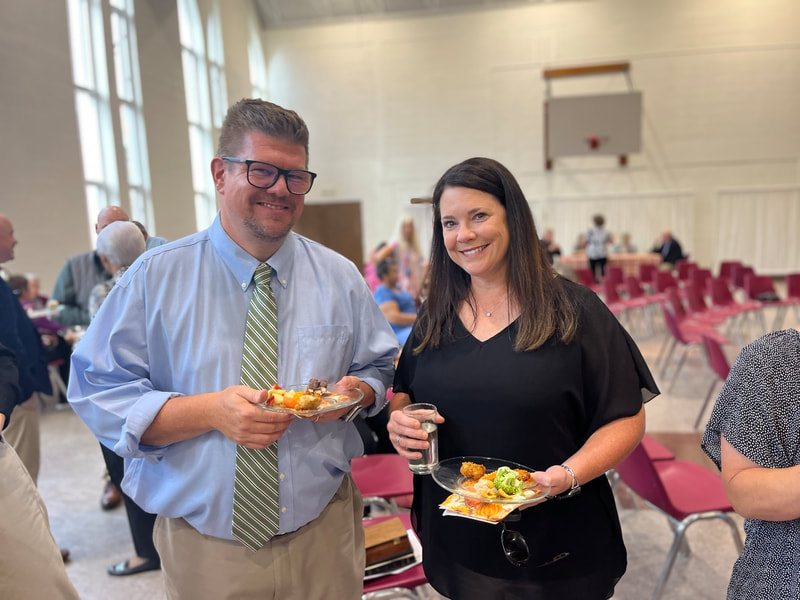
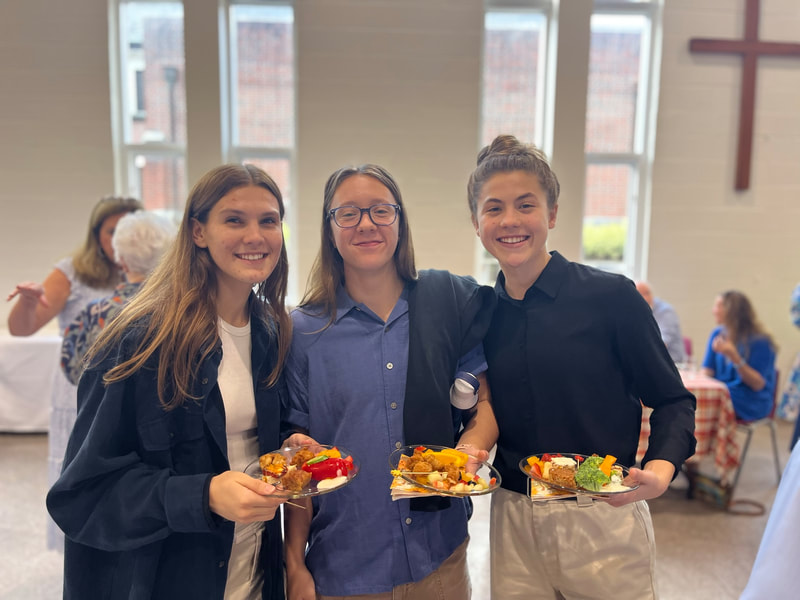
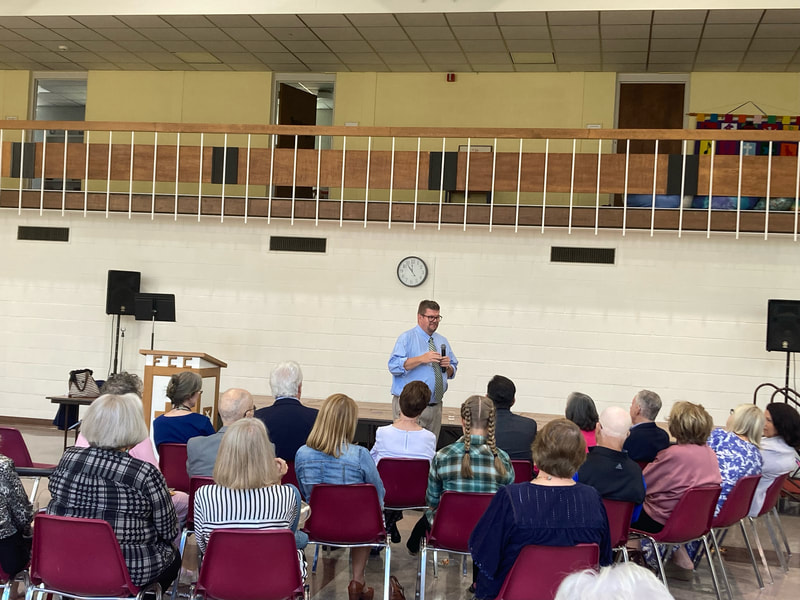

 RSS Feed
RSS Feed
